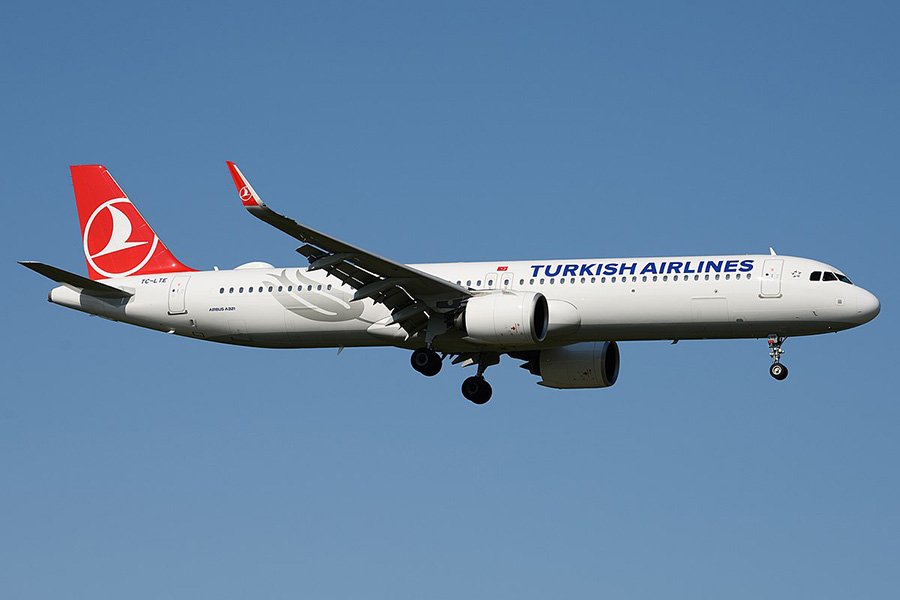read also
Russian Tourist Wins Nearly 1 Million Rubles from Turkish Airlines

Photo: Wikimedia
A resident of Naberezhnye Chelny has won a lawsuit against Turkish Airlines, after the carrier unilaterally canceled his paid tickets to Brazil, Tourdom reports. The airline had failed to respond to the passenger’s complaints, forcing him to spend an additional 260,000 rubles ($3,245) on new tickets.
In February 2025, the tourist planned to fly with Turkish Airlines from Kazan via Istanbul to São Paulo and back. The original tickets cost him 261,500 rubles ($3,265) but were later canceled. To avoid losing his trip, he purchased new tickets from another airline for 260,000 rubles. When Turkish Airlines ignored his claims, the passenger filed a lawsuit.
In his statement, he demanded reimbursement for the unused tickets, compensation for the price difference of new ones (109,470 rubles / $1,367), as well as damages for delays in passenger and baggage transport (over 453,000 rubles / $5,655). He also claimed moral damages of 100,000 rubles ($1,249), according to the Naberezhnye Chelny City Court.
The court reduced the moral damages twentyfold to 5,000 rubles ($63) but upheld the rest of the claims. In total, Turkish Airlines’ Russian subsidiary — AO “Tur Hava Yollari” — was ordered to pay 965,000 rubles (over $12,000). The ruling has not yet entered into force and can still be appealed.
This case follows a series of controversies involving Turkish Airlines. Just a year earlier, dozens of Russian travelers were stranded in Istanbul after being denied boarding on flights to Latin America. Despite having valid tickets and hotel bookings, passengers were refused entry to flights bound for Argentina, Brazil, Mexico, Panama, Colombia, and Cuba.
The airline cited various formal reasons: lack of baggage, unconfirmed hotel bookings, or “clean” passports without visas. In some cases, travelers were told they could not prove financial solvency or had never visited Western Europe or North America.
The issue became widespread, with reports of Russians being trapped in Istanbul’s transit zone. Shot reported that around 1,000 Russian citizens were denied boarding within several months, with nearly 30 passengers blocked from a single flight in April 2024.
Industry experts linked the situation to geopolitical concerns. Arthur Muradyan, Vice-President of ATOR and CEO of Space Travel, suggested that the refusals were linked to fears of U.S. sanctions, particularly concerning flights to Mexico, a major channel of illegal migration. Dmitry Arutyunov, head of ART-Tour, tied restrictions on Argentina flights to the rise of “birth tourism,” where Russian women traveled to give birth abroad to secure citizenship and residency rights.
The Russian Embassy advised citizens to record refusals and seek compensation through the courts. Turkish Airlines later softened requirements, removing the baggage and visa stamp condition, but still demanded return tickets, confirmed accommodation, and proof of financial means. Despite these adjustments, many Russian travelers lost trust in the airline and shifted to alternative routes via Qatar, the UAE, and Ethiopia.
In May 2025, Turkish Airlines was also among the first carriers to enforce new passenger conduct rules on planes, now applied across the industry. Passengers can be fined for leaving their seats before the aircraft has come to a complete stop and the seatbelt sign has been switched off. The first such fines were imposed on Pegasus Airlines passengers flying from Sofia to Istanbul, when police boarded the plane after rules were ignored.
These incidents reflect a broader tightening of rules for Russian citizens on international flights. Experts urge travelers to prepare documentation carefully, plan alternative routes, and be ready to defend their rights in court if necessary.
Подсказки: Turkish Airlines, Russia, lawsuit, compensation, flights, Latin America, aviation, court case, passenger rights, travel bans








